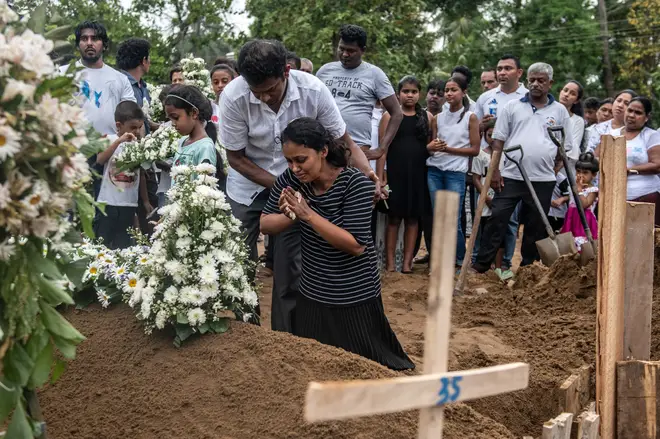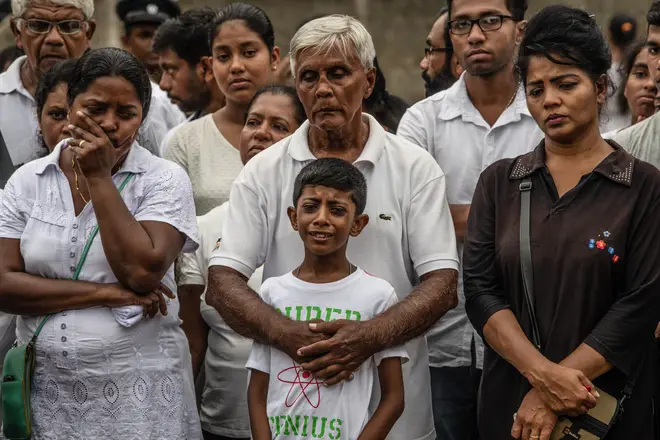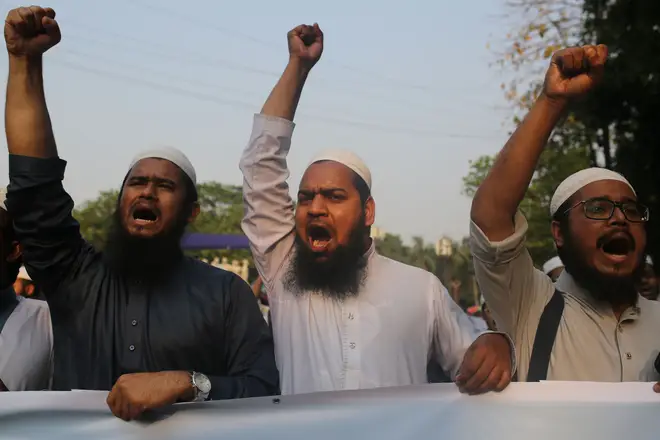Sri Lanka travel advice: What's the Foreign Office said about tourist safety and what can you do if you've got a holiday booked?
26 April 2019, 09:34 | Updated: 26 April 2019, 10:20

On Easter Sunday, a deadly attack was carried out in Sri Lanka, killing 359 people, before a second wave of attacks. Since, the UK Foreign Office has issued travel advice for those visiting the region.
On Easter Sunday, a series of attacks were carried out through three churches and four hotels in Sri Lanka. Over 300 people were killed and 500 others were injured, as bombs tore through the places of worship.
Now, the UK's Foreign Office has issued official travel advice for those who are in the region at the moment, or those who have holidays planned.
Here's the latest safety information and advice on what to do if you have flights booked to Sri Lanka.
Foreign Office travel advice for Sri Lanka
The Foreign and Commonwealth Office (FCO) is advising against all but essential travel to Sri Lanka at the moment.
The safety summary, which was last updated on Friday 26th April, 2019, reads:
"Terrorists are very likely to try to carry out attacks in Sri Lanka. Attacks could be indiscriminate, including in places visited by foreigners.
On 21 April 2019, bombs were used to attack 3 churches and 3 hotels in Sri Lanka: in central Colombo, in the northern suburb of Colombo Kochchikade, and in Negombo roughly twenty miles north of Colombo; and in the east of the country in Batticaloa.
More than 300 people were killed, including at least 8 British nationals.Security has been stepped up across the island. A State of Emergency and night-time curfew remain in place.
The Sri Lankan authorities have made a number of arrests in relation to the attacks, and security operations are ongoing, including controlled explosions of suspicious packages and vehicles, and temporary evacuations of buildings.
However, the extent of any continued threat following the 21 April attacks remains unclear. On 24 April 2019, the Sri Lanka police issued a warning that mosques may be targeted by attacks, specifying ‘Aulia’ Mosques connected with the ‘burial sites of Muslim Saints’."

What advice has been issued for those in Sri Lanka at the moment?
- Remain vigilant, keep up to date with developments and follow the advice of local security authorities and hotel security staff;
- Keep a low profile, avoid crowded public places, large gatherings (including religious gatherings and places of worship) and any demonstrations. All of the attacks on 21 April were carried out either in places of worship or in places where foreign visitors were affected. Any further attacks may be targeted against similar locations;
- Avoid travelling during periods of curfew (other than to/from the airport - see below);keep in touch with family and friends, ensuring they are aware of any plans you may have.
You can view full details from the Foreign Office here.

What can you do if you have flights or holidays to Sri Lanka booked?
The Foreign Office is strongly advising against travelling to Sri Lanka at the moment, unless it is essential.
For those who have flights and holidays booked, it is advisable that you contact the airline or travel agent directly, to see what their policy is for refunds and rescheduling.
What happened in Sri Lanka over Easter?
On Easter Sunday morning, an attack was carried out on three Catholic churches and four hotels in Sri Lanka, as six blasts went off.
Two further explosions were reported later that same day - one in Dehiwala and the other in the district of Dematagoda.
So far, over 300 people have died from the Easter bombings and over 500 people have suffered injuries.
The Sri Lankan government placed blame on Muslim extremist group, the National Thowheed Jamaath (NTJ). Domestic and international authorities hadn't ruled out foreign terrorist groups, though, given the scale and organisation of the attacks.
On Tuesday 23rd April, ISIS claimed responsibility for the attacks in Sri Lanka.






















